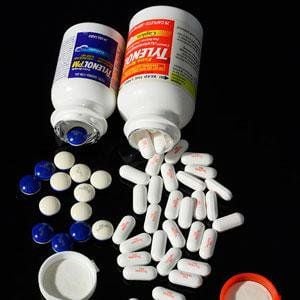Pedialyte belongs to the group of electrolyte solutions containing dextrose. It is commonly used to replace fluids and minerals such as sodium and potassium lost from dehydration caused by conditions like diarrhea and vomiting.
1. What does Pedialyte do?
Pedialyte is used to replenish fluids and electrolytes, helping to prevent or treat excessive water loss in the body (dehydration).
It contains the necessary fluids and electrolytes to support physiological functions.
2. How to use Pedialyte
Pedialyte is taken orally and is available in both liquid and powder forms. If using the liquid formulation, patients should shake the bottle well before drinking. For the powder formulation, patients should mix the packet’s contents with water as directed on the product packaging. It is important not to heat this medication unless explicitly allowed by the manufacturer’s instructions.
Pedialyte dosing regimen is designed based on your health status and how your body responds to treatment. Patients should not drink fruit juices or consume foods with added salt while taking Pedialyte, unless instructed otherwise by your doctor. Notify your doctor immediately if you’re experiencing severe abdominal pain, intense stomach cramps, vomiting, bloody stools, fever, or signs of worsening dehydration.
3. Side Effects of Pedialyte
Some possible side effects when using Pedialyte may include:
• Mild symptoms include nausea and light vomiting (these can often be minimized by sipping the solution slowly with a spoon).
• Severe symptoms include dizziness, weakness, swelling of the ankles or feet, mood changes, or mental status changes.
• Rare allergic reactions will exhibit widespread rash, itching, swelling, dizziness, or difficulty breathing.
This is not a complete list of potential side effects. If you experience any other adverse effects or if listed side effects persist or worsen, contact your doctor immediately.

4. Precautions when using Pedialyte
Before using Pedialyte, consider the following:
• Inform your doctor or pharmacist if you are allergic to Pedialyte or its ingredients, or if you have any other allergies.
• Discuss any underlying health conditions, including: inability to retain fluids in the stomach, difficulty urinating, intestinal obstruction
• Before undergoing surgery, inform your doctor or dentist about all products you are using, including non-prescription Pedialyte and herbal supplements.
For pregnant or breastfeeding women, you should consult your doctor to ensure safe use of Pedialyte.
5. Drug interactions
Using multiple medications simultaneously can diminish or alter their effectiveness. As such you should never adjust dosages or combine medications without your doctor’s approval. Additionally, certain mineral supplements (e.g., potassium) may interact with Pedialyte.
6. Pedialyte Overdose
Overdose occurs when a patient consumes more medication than prescribed. Symptoms of overdose include:
• Difficulty breathing or irregular heart rhythm
• Hallucinations
• Fainting
• Seizures
Store Pedialyte in a dry place away from direct sunlight and high humidity. Keep it out of reach of children and pets, if disposal is possible, Dispose of unused or expired Pedialyte properly as instructed by the manufacturer to protect the environment.
To arrange an appointment, please call HOTLINE or make your reservation directly HERE. You may also download the MyVinmec app to schedule appointments faster and manage your reservations more conveniently.
Reference source: webmd.com













